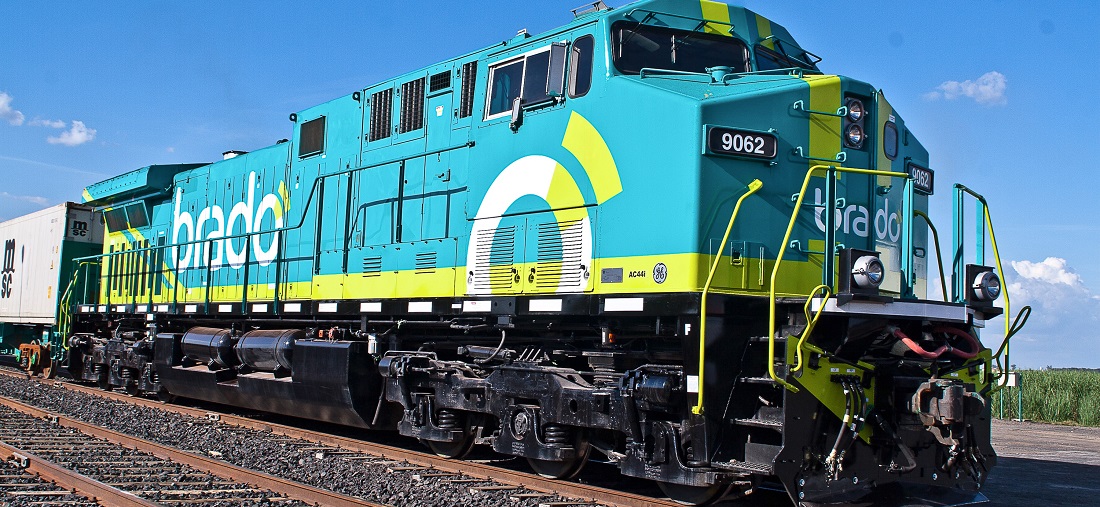
São Paulo industries see remarkable 25% growth in container transportation
Jun, 01, 2023 Posted by Gabriel MalheirosWeek 202325
Cargo transportation facilitated by logistics company Brado from São Paulo to Mato Grosso experienced a 25% year-on-year growth in the first quarter of this year. The volume of containers transported in double-stack wagons between Sumaré and Rondonópolis has been consistently high, with various products being delivered to Mato Grosso. The peak flow towards the Midwest region was recorded in June 2022, with an impressive occupancy rate of 94%. In March of this year, the highest monthly volume was reached, with over a thousand fully loaded containers.
The increase in cargo throughput was driven by agricultural pesticides, beverages, hygiene and cleaning products, and construction materials. Pesticides, in particular, saw a remarkable growth of up to 115%. The beverage market also experienced significant growth, doubling its volume compared to the first quarter of 2022, with the number of transported containers increasing from 95 to 191.
According to Rafael Seijas, Executive Manager of Planning at Brado, this logistics solution represents a transformative potential in the region. “We initiated this operation in the domestic market in 2017, handling 519 containers in the first year. Five years later, we have already surpassed the milestone of 10,000 containers per year heading towards Mato Grosso.”
Moving cargo from the industrialized region to the hinterland of the country by rail embodies a paradigm shift in Brazilian logistics, as explained by the manager. “The usual transport flow is unbalanced, with containers transported in the road and rail assets going full to ports and returning to the interior with significant idleness.”
Changes
Operating in a market that differs from the company’s usual focus on export cargo provoked internal changes. The delivery department has expanded and reorganized itself to handle the daily operations effectively.
“The domestic market is distinct from the export market. It requires daily interaction with customers and a comprehensive understanding of the entire supply chain. We must be aware that any disruption can result in the end customer not finding products on the supermarket shelves,” says Zuleica de Melo, Executive Manager of Commercial Execution and Customer Experience.
Two operating models are utilized on this route. In direct sales (door-to-door), products leave the industry and are delivered directly to the end customers, such as wholesalers or building materials stores. In the stock transfer model, the cargo is stored in Rondonópolis until it is sold.
Advantages
One of the benefits for customers in this market is the ability to have stock in transit. Wholesalers or distributors can purchase loads from the industry even if they don’t have the material space to receive the products yet. While the purchased goods travel by rail, the stock remains in transit.
For the agricultural input market, the appeal lies in advanced stock availability, which adds value for both the industry and the producers. Brado has a warehouse in Rondonópolis with products ready for prompt delivery. This arrangement allows the industry to have storage space outside its plant and close to the largest consumer market, facilitating producer access based on demand.
Source: Exame
To read the original news report, see: https://exame.com/bussola/industrias-paulistas-adotam-solucao-multimodal-para-transporte-de-containers/
-
Nov, 25, 2021
0
TCU to release the privatization of the Port of Vitória by December 15
-
Other Cargo
Oct, 22, 2019
0
Brazil imports record ferrous scrap volumes in 2019
-
Trade Regulations
Mar, 23, 2022
0
Senate approves tax exemption on imported photographic equipment
-
Ports and Terminals
Apr, 26, 2019
0
Santos records a 1.5% drop in cargo handling in Q1, 2019


